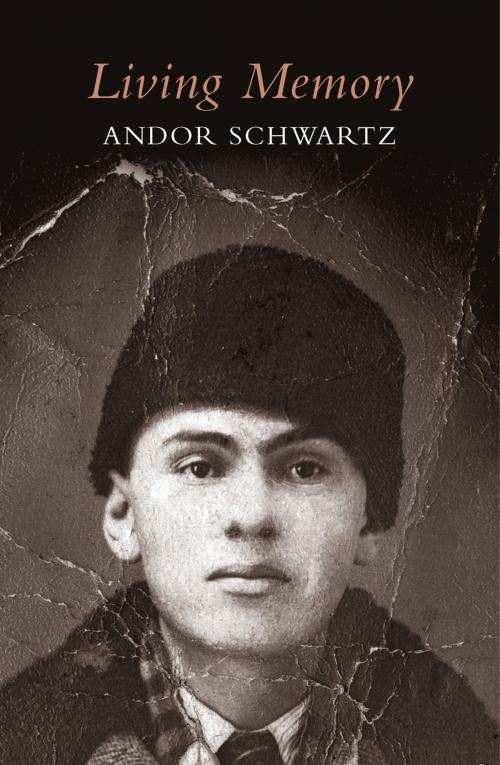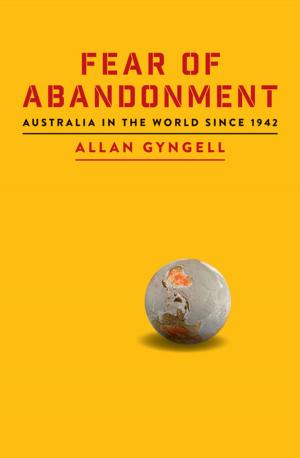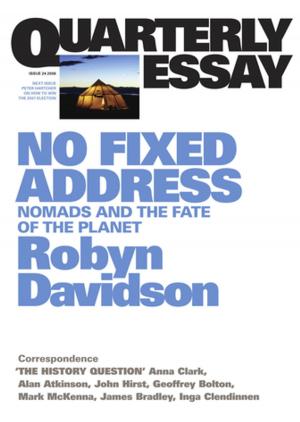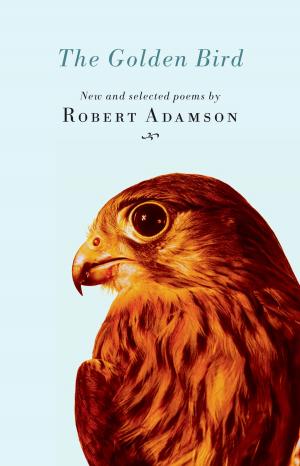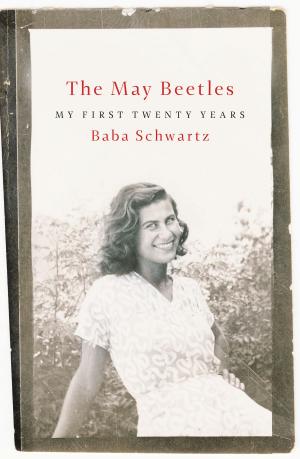| Author: | Andor Schwartz | ISBN: | 9781921866524 |
| Publisher: | Schwartz Publishing Pty. Ltd | Publication: | March 31, 2010 |
| Imprint: | Black Inc. | Language: | English |
| Author: | Andor Schwartz |
| ISBN: | 9781921866524 |
| Publisher: | Schwartz Publishing Pty. Ltd |
| Publication: | March 31, 2010 |
| Imprint: | Black Inc. |
| Language: | English |
They have no graves, no markers of ever having existed.
The millions of people murdered by the Nazis live on only in the memories of the survivors. In his seventy-ninth year, Andor Schwartz was driven to record the lives of his family and friends who perished.
Writing with the instincts of a born storyteller, Andor takes us back to the world of his childhood in rural Hungary in the years leading up to World War II. His love of nature and country life, his friendships, the harvests, the Jewish festivals, the age-old customs – now lost – are evoked with intense vitality, before dark clouds gathered to obliterate this Arcadian childhood.
We live with him through the horrors of the Holocaust, on the run in Budapest, evading death time and time again under the protection of his Malach (angel), whose name had been given to him by his father on their separation. Andor survived, but his entire family was killed. He takes us to Israel and then to Australia, where he prospered, his children had children, and the cycle of life returned to its natural order.
‘Possessing a memory of extraordinary fidelity and vividness, Andor Schwartz has succeeded, almost miraculously, in bringing back to life the fascinating world of his family and of pre-war Orthodox Hungarian Jewry. I could not put it down.’ —Robert Manne
Andor Schwartz was born in Hungary in 1924. He survived World War II in Budapest – although his whole family was killed – before marrying Margaret (Baba) Keimovits, one of the few survivors from their area. They fled to Israel when the communists came to power in 1949. After ten years of working the land, they migrated to Melbourne, where he became a dairy farmer and a successful property developer.
The millions of people murdered by the Nazis live on only in the memories of the survivors. In his seventy-ninth year, Andor Schwartz was driven to record the lives of his family and friends who perished.
Writing with the instincts of a born storyteller, Andor takes us back to the world of his childhood in rural Hungary in the years leading up to World War II. His love of nature and country life, his friendships, the harvests, the Jewish festivals, the age-old customs – now lost – are evoked with intense vitality, before dark clouds gathered to obliterate this Arcadian childhood.
We live with him through the horrors of the Holocaust, on the run in Budapest, evading death time and time again under the protection of his Malach (angel), whose name had been given to him by his father on their separation. Andor survived, but his entire family was killed. He takes us to Israel and then to Australia, where he prospered, his children had children, and the cycle of life returned to its natural order.
‘Possessing a memory of extraordinary fidelity and vividness, Andor Schwartz has succeeded, almost miraculously, in bringing back to life the fascinating world of his family and of pre-war Orthodox Hungarian Jewry. I could not put it down.’ —Robert Manne
Andor Schwartz was born in Hungary in 1924. He survived World War II in Budapest – although his whole family was killed – before marrying Margaret (Baba) Keimovits, one of the few survivors from their area. They fled to Israel when the communists came to power in 1949. After ten years of working the land, they migrated to Melbourne, where he became a dairy farmer and a successful property developer.
They have no graves, no markers of ever having existed.
The millions of people murdered by the Nazis live on only in the memories of the survivors. In his seventy-ninth year, Andor Schwartz was driven to record the lives of his family and friends who perished.
Writing with the instincts of a born storyteller, Andor takes us back to the world of his childhood in rural Hungary in the years leading up to World War II. His love of nature and country life, his friendships, the harvests, the Jewish festivals, the age-old customs – now lost – are evoked with intense vitality, before dark clouds gathered to obliterate this Arcadian childhood.
We live with him through the horrors of the Holocaust, on the run in Budapest, evading death time and time again under the protection of his Malach (angel), whose name had been given to him by his father on their separation. Andor survived, but his entire family was killed. He takes us to Israel and then to Australia, where he prospered, his children had children, and the cycle of life returned to its natural order.
‘Possessing a memory of extraordinary fidelity and vividness, Andor Schwartz has succeeded, almost miraculously, in bringing back to life the fascinating world of his family and of pre-war Orthodox Hungarian Jewry. I could not put it down.’ —Robert Manne
Andor Schwartz was born in Hungary in 1924. He survived World War II in Budapest – although his whole family was killed – before marrying Margaret (Baba) Keimovits, one of the few survivors from their area. They fled to Israel when the communists came to power in 1949. After ten years of working the land, they migrated to Melbourne, where he became a dairy farmer and a successful property developer.
The millions of people murdered by the Nazis live on only in the memories of the survivors. In his seventy-ninth year, Andor Schwartz was driven to record the lives of his family and friends who perished.
Writing with the instincts of a born storyteller, Andor takes us back to the world of his childhood in rural Hungary in the years leading up to World War II. His love of nature and country life, his friendships, the harvests, the Jewish festivals, the age-old customs – now lost – are evoked with intense vitality, before dark clouds gathered to obliterate this Arcadian childhood.
We live with him through the horrors of the Holocaust, on the run in Budapest, evading death time and time again under the protection of his Malach (angel), whose name had been given to him by his father on their separation. Andor survived, but his entire family was killed. He takes us to Israel and then to Australia, where he prospered, his children had children, and the cycle of life returned to its natural order.
‘Possessing a memory of extraordinary fidelity and vividness, Andor Schwartz has succeeded, almost miraculously, in bringing back to life the fascinating world of his family and of pre-war Orthodox Hungarian Jewry. I could not put it down.’ —Robert Manne
Andor Schwartz was born in Hungary in 1924. He survived World War II in Budapest – although his whole family was killed – before marrying Margaret (Baba) Keimovits, one of the few survivors from their area. They fled to Israel when the communists came to power in 1949. After ten years of working the land, they migrated to Melbourne, where he became a dairy farmer and a successful property developer.
